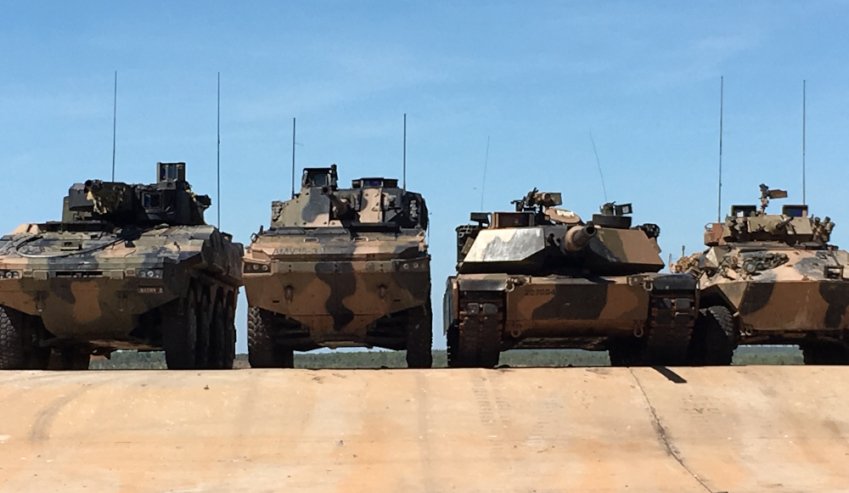The stream of defence projects put forward in the 2016 Defence White Paper has seen states go head-to-head to secure coveted contracts, with South Australia, Western Australia and Victoria previously battling it out for naval shipbuilding projects, and now Queensland and Victoria are vying for the LAND 400 Phase 2 project. But this tendering process has since been blasted by politicians as a waste of taxpayer dollars.
To continue reading the rest of this article, please log in.
Create free account to get unlimited news articles and more!
Speaking to Defence Connect, opposition spokesman for Defence, Richard Marles said while the competition between states is natural, the federal government must be more aware of the impact this is having.
"It's understandable that states want a part of the defence industry pie," Marles said. "There are jobs involved here and it's certainly helped build industry within states. I think states putting forward what they're capabilities are and marketing them is totally fair enough.
"We are seeing, and have seen in the last few years, a high degree of competition, which ultimately has involved incentives being provided to companies to locate their activities in particularly parts of the country. Now, we need to be very careful and mindful about that. I think that those incentives come at the cost of the Australian taxpayer. It needs to be very clear that there is a benefit to the taxpayer by virtue of that."
However, states are now working towards better collaboration to better maximise opportunities, Marles said.
"I think we are getting to a point where we need to be thinking about, in the national interest, how states can perhaps collaborate more and see the opportunity that comes from doing that.
"I think the kind of full on state-on-state competition does have it's ultimate limits here, and it's important that we are thinking about that ... I do detect in the conversations I've had with the states, a bit of a shift. I think they're seeing that as well it can be a pretty expensive exercise to get involved in, and I think they want to make sure that value for money, in terms of taxpayer money, is being ultimately achieved here."
Marles' comments echo those of former parliamentary secretary for defence procurement Greg Combet who told Defence Connect a better system must be created, one that will be of benefit to the whole nation.
"I think it would be far better to conduct procurement processes from a national benefit perspective for defence and the federal government to be looking at it and saying, 'Well, how do we optimise the economic outcome for the country?'" said Combet.
"And therefore, 'to achieve that we'll conduct the procurement in this particular manner'."
Chief executives from defence industry have also argued that the current state of defence procurement will see more 'valleys of death' created if project decisions are made in favour of state-backed funds and investment rather than sustainable decisions.
"Businesses need to be sustainable for the long-term on their own merits, and our businesses look at the long-term business case and work out: does it make sense to establish, in the case of that LAND 400 project, a build facility that will set up a project for a period of time and then that project will end and then what will be left? In the shipbuilding sector it was called the valley of death for a period of time where projects came, projects went and there was an aftermath," Thales Australia's CEO Chris Jenkins told the NSW Legislative Council’s standing committee on state development in August.
"Projects need to be in the context of a sustainable business enterprise."
Quickstep CEO Mark Burgess added: "I think interstate competition benefits the foreign original equipment manufacturers [OEMs] more than it benefits anybody else."
"Industrial policy is a collaborative effort rather than a competitive effort. I completely agree with Mr Jenkins' sentiment about business sustainability. There is a lot of presentational benefit of large-scale programs being attracted to a specific place but you have to consider it on the basis of sustainability.
"The way we [Quickstep Holdings] look at this is that we have a very capable manufacturing base in Bankstown. I could come to you guys and say, 'We've got an R&D site in Geelong. I would like you and the Victorian government to bid each other up on how much money you can give me to attract the R&Ds to NSW'. I do not believe it is in anybody's interest to do that, but I could do that because the state rivalry allows that to happen.

 Login
Login







